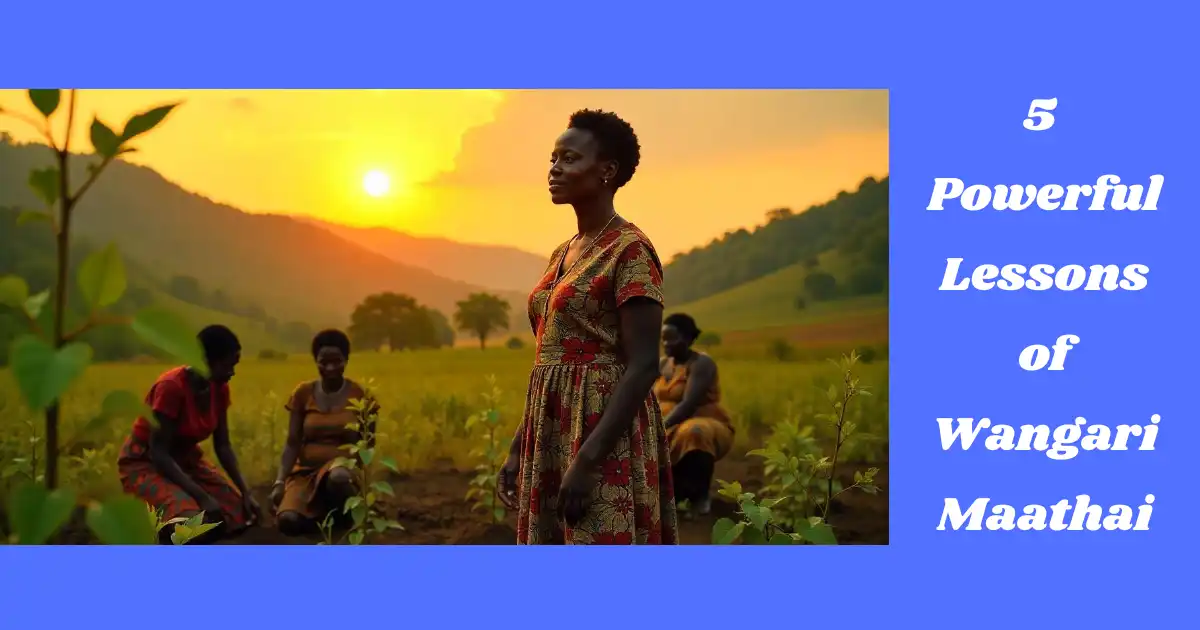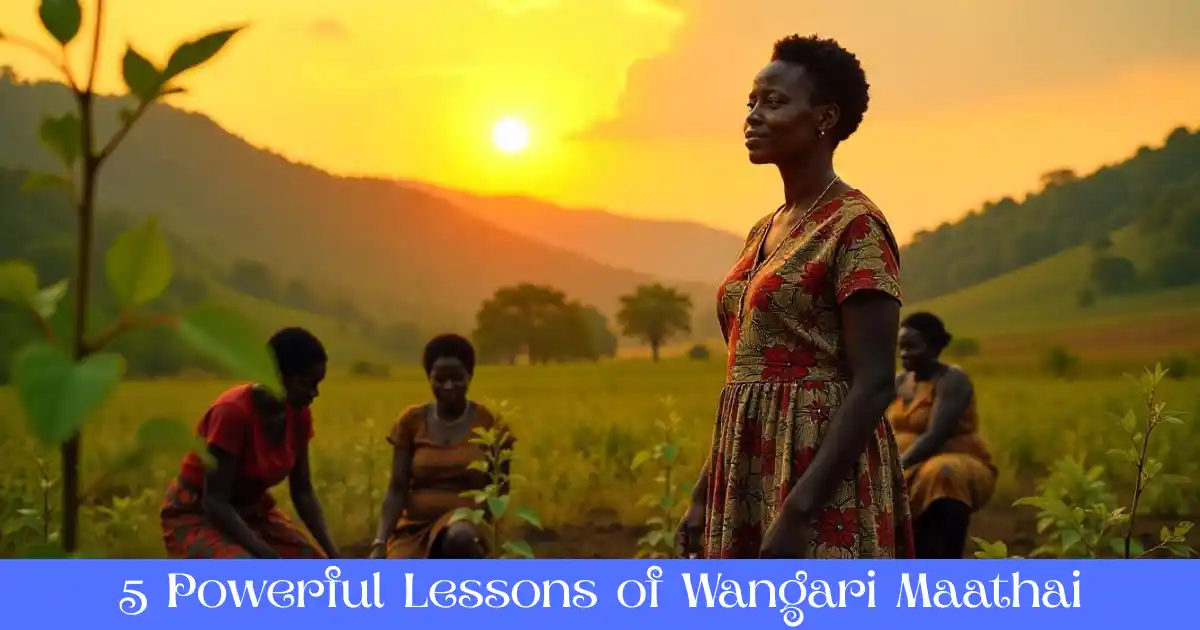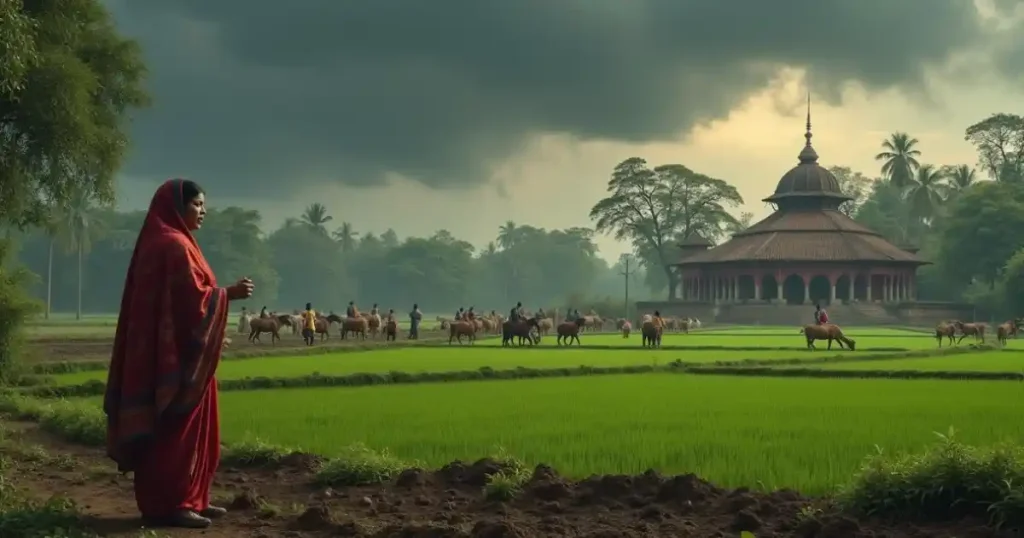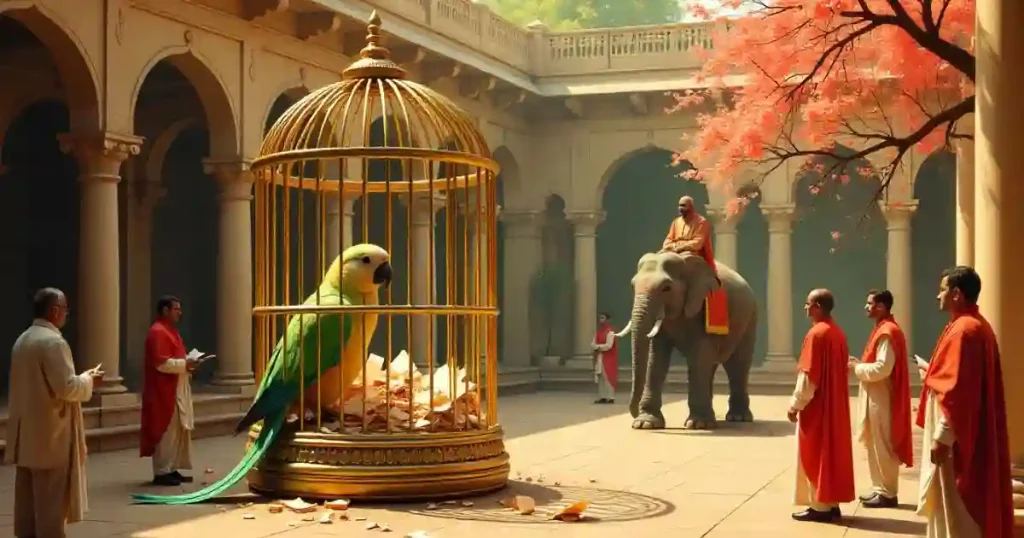Wangari Maathai ছিলেন একজন অসাধারণ আফ্রিকান নারী, যিনি পরিবেশ রক্ষা, নারীর ক্ষমতায়ন এবং সামাজিক ন্যায়বিচারের জন্য আজীবন সংগ্রাম করেছেন। তিনি ছিলেন প্রথম আফ্রিকান নারী যিনি নোবেল শান্তি পুরস্কারে ভূষিত হন।

তাঁর তৈরি ‘Green Belt Movement’ সারা বিশ্বেই পরিবেশগত আন্দোলনের প্রতীক হয়ে উঠেছে। এই লেখায় আমরা তার জীবন, অবদান, আন্দোলনের লক্ষ্য, অর্জন ও উত্তরাধিকার বিশ্লেষণ করব।
Read more – The Great Women of Bengal: Pioneers of Social Change U4L2
Wangari Maathai
“We have a special responsibility to the ecosystem of this planet. In making sure that other species survive we will be ensuring the survival of our own.”
The first African woman and first environmentalist awarded the Nobel Peace Prize, Wangari Maathai (1940-2011) received that honour in 2004 as the founder of the Green Belt Movement in Kenya, a nonprofit organization dedicated to planting trees, environmental conservation, and women’s rights.
Maathai introduced the idea of planting trees with the people and developed it into a broad-based, grassroots organization designed to conserve the environment and improve women’s quality of life. In 1986 the Green Belt Movement established a Pan African Green Belt Network and has introduced over 40 individuals from other African countries to its approach.
The Movement set both short and long-term objectives. The overall aim has been to create public awareness of the need to protect the environment through tree planting and sustainable management. More specifically, it has initiatives to promote and protect biodiversity, to protect the soil, to create jobs especially in the rural areas, to give women a positive image in the community and to assert their leadership qualities. It promotes food security and assists people to make the link between environmental degradation and many of the problems they face, including poverty and livelihood insecurity.
Over its first 20 years, many of the Movement’s objectives have been achieved. Environmental awareness has been greatly increased in the world, and many women’s groups have sold millions of seedlings to the Movement, using the income to meet immediate domestic needs such as education of their children or investing it in other income-generating ventures. Tree planting has become an honourable activity and many people have adopted it.
In later years Maathai’s own work had focused on the human rights situation in Kenya. Standing up for a democratic, multi-ethnic Kenya, she was subjected to defamation, persecution, detention and physical attacks.
Maathai received numerous awards and honorary degrees. Time Magazine identified her as one of 100 most influential people in the world in 2005, and Forbes Magazine as one of 100 most powerful women in the world. In 2007 she was awarded the Nelson Mandela Award for Health and Human Rights, in 2010 the Lions Humanitarian Award and the International Freedom Award.
She died from cancer in 2011, but her legacy continues in many projects worldwide, such as in ‘Plant for the Planet: The Billion Tree Campaign’.
[This passage/content is taken from the National Curriculum and Textbook Board (NCTB), Bangladesh English textbook for educational purposes only.]
© NCTB Bangladesh. All rights reserved to the original publisher.

Read more – AI Classrooms: Benefits, Challenges & EdTech’s Role- U1L2
Important Words and Phrases with Bangla Meanings
| English Word/Phrase | Bangla Meaning |
|---|---|
| Ecosystem | বাস্তুতন্ত্র |
| Species | প্রজাতি |
| Survival | বেঁচে থাকা, টিকে থাকা |
| Environmentalist | পরিবেশবিদ |
| Nobel Peace Prize | নোবেল শান্তি পুরস্কার |
| Nonprofit organization | অলাভজনক প্রতিষ্ঠান |
| Conservation | সংরক্ষণ |
| Women’s rights | নারীর অধিকার |
| Grassroots organization | তৃণমূল সংগঠন |
| Pan African Green Belt Network | সর্বআফ্রিকান সবুজ বেল্ট নেটওয়ার্ক |
| Public awareness | জনসচেতনতা |
| Sustainable management | টেকসই ব্যবস্থাপনা |
| Biodiversity | জীববৈচিত্র্য |
| Livelihood insecurity | জীবিকার অনিশ্চয়তা |
| Food security | খাদ্য নিরাপত্তা |
| Rural areas | গ্রামীণ অঞ্চল |
| Income-generating ventures | আয়-সৃষ্টি কার্যক্রম |
| Human rights situation | মানবাধিকার পরিস্থিতি |
| Democratic, multi-ethnic Kenya | গণতান্ত্রিক, বহু-জাতিগোষ্ঠীর কেনিয়া |
| Defamation | মানহানি |
| Persecution | নিপীড়ন |
| Detention | আটক |
| Legacy | উত্তরাধিকার, প্রভাব |
| Tree planting | গাছ রোপণ |
| Environmental degradation | পরিবেশের অবনতি |
| Influential people | প্রভাবশালী মানুষ |
| Powerful women | ক্ষমতাধর নারী |
| Humanitarian Award | মানবতাবাদী পুরস্কার |
| Plant for the Planet | প্ল্যান্ট ফর দ্য প্ল্যানেট (গাছ রোপণের বিশ্বব্যাপী প্রকল্প) |
| Billion Tree Campaign | বিলিয়ন ট্রি ক্যাম্পেইন (এক বিলিয়ন গাছ রোপণ কর্মসূচি) |
Para-wise Bangla Explanation
Para 1:
“Wangari Maathai বলেন, আমাদের পৃথিবীর বাস্তুতন্ত্রের জন্য বিশেষ দায়িত্ব রয়েছে। অন্য প্রজাতিকে বাঁচিয়ে রাখতে পারলেই আমরা নিজেদের টিকিয়ে রাখতে পারব।”
➡️ এই অনুচ্ছেদে তিনি মানুষ ও প্রকৃতির পারস্পরিক নির্ভরশীলতার কথা বলছেন। প্রকৃতি রক্ষা মানেই মানুষের অস্তিত্ব রক্ষা।
Para 2:
তিনি প্রথম আফ্রিকান নারী যিনি পরিবেশবিষয়ক কর্মকাণ্ডের জন্য নোবেল শান্তি পুরস্কার পান। তিনি ‘Green Belt Movement’ এর প্রতিষ্ঠাতা, যার কাজ গাছ লাগানো, পরিবেশ সংরক্ষণ ও নারীর অধিকার নিশ্চিত করা।
Para 3:
Maathai জনসাধারণকে সঙ্গে নিয়ে গাছ লাগানোর ধারণা দেন এবং তা একটি তৃণমূল পর্যায়ের আন্দোলনে রূপ নেয়। ১৯৮৬ সালে এটি প্যান-আফ্রিকান পর্যায়ে ছড়িয়ে পড়ে।
Para 4:
মুভমেন্টটির লক্ষ্য ছিল পরিবেশ রক্ষা ও সচেতনতা তৈরি করা। এর মাধ্যমে জীববৈচিত্র্য রক্ষা, মাটি সংরক্ষণ, গ্রামীণ চাকরি সৃষ্টি ও নারীর নেতৃত্ব প্রতিষ্ঠায় কাজ করা হয়েছে।
Para 5:
প্রথম ২০ বছরে এ আন্দোলনের মাধ্যমে অনেক গাছ লাগানো হয়েছে। নারীরা গাছের চারা বিক্রি করে তাদের শিশুদের শিক্ষায় বা অন্য আয়মুখী কাজে টাকা ব্যয় করেছে।
Para 6:
পরবর্তীতে Maathai মানবাধিকার ও গণতন্ত্রের প্রশ্নে সরব হন। এজন্য তাকে নির্যাতনের শিকার হতে হয়।
Para 7:
তিনি বিভিন্ন পুরস্কার ও সম্মাননায় ভূষিত হন, যেমন টাইম ম্যাগাজিনের ১০০ প্রভাবশালী ব্যক্তি, নেলসন ম্যান্ডেলা অ্যাওয়ার্ড, লায়ন্স হিউম্যানিটারিয়ান অ্যাওয়ার্ড ইত্যাদি।
Para 8:
২০১১ সালে ক্যান্সারে তার মৃত্যু হলেও তার উদ্যোগ ‘Billion Tree Campaign’ এর মতো প্রকল্পের মাধ্যমে বিশ্বব্যাপী চলমান রয়েছে।

Read more about Wangari Maathai
Relevant Historical Events:
- 2004: Wangari Maathai receives the Nobel Peace Prize — first African woman and first environmentalist to do so.
- 1977: Establishment of the Green Belt Movement in Kenya.
- 1986: Expansion into the Pan African Green Belt Network.
- 2011: Death of Maathai, sparking global tribute and expansion of her initiatives.
Literary Terms
- Metaphor: “We have a special responsibility to the ecosystem” – here, the word ‘responsibility’ carries deeper ethical and ecological connotation beyond literal meaning.
- Allusion: The reference to “Plant for the Planet” suggests a broader environmental context that alludes to collective global efforts.
Answer the following Short Questions
- In which year did Wangari Maathai receive the Nobel Peace Prize?
- What is the name of the movement she founded?
- What country is Wangari Maathai from?
- What are the main goals of the Green Belt Movement?
- What was the Pan African Green Belt Network?
- How did the Green Belt Movement empower women?
- What challenges did Maathai face in her activism?
- Name one international award she received.
- What is the “Billion Tree Campaign”?
- When did Wangari Maathai die and what was the cause?

